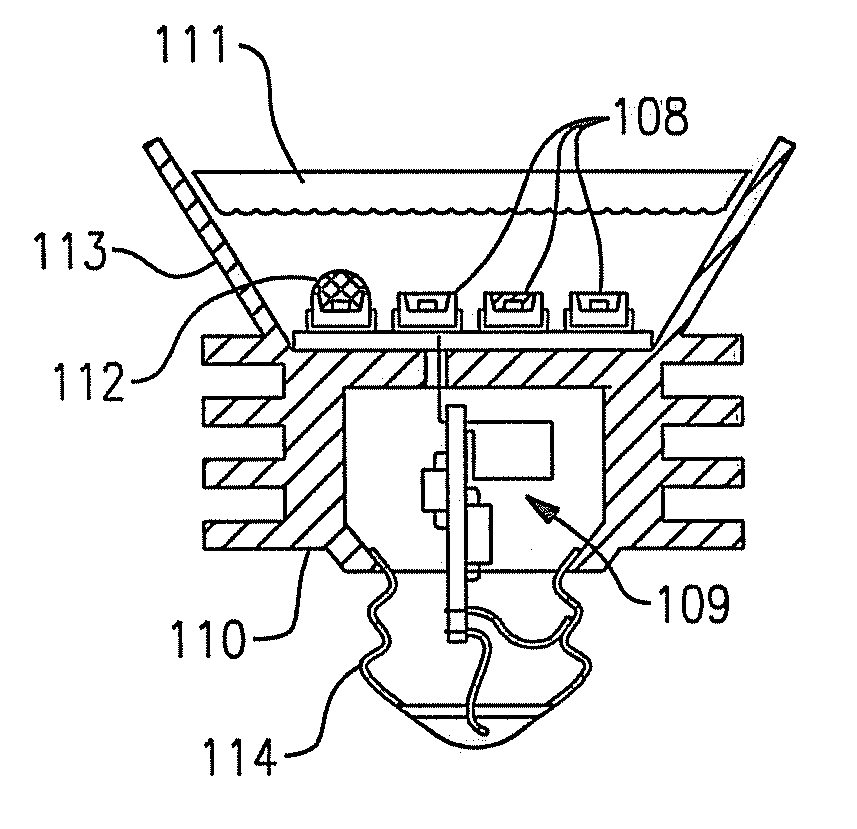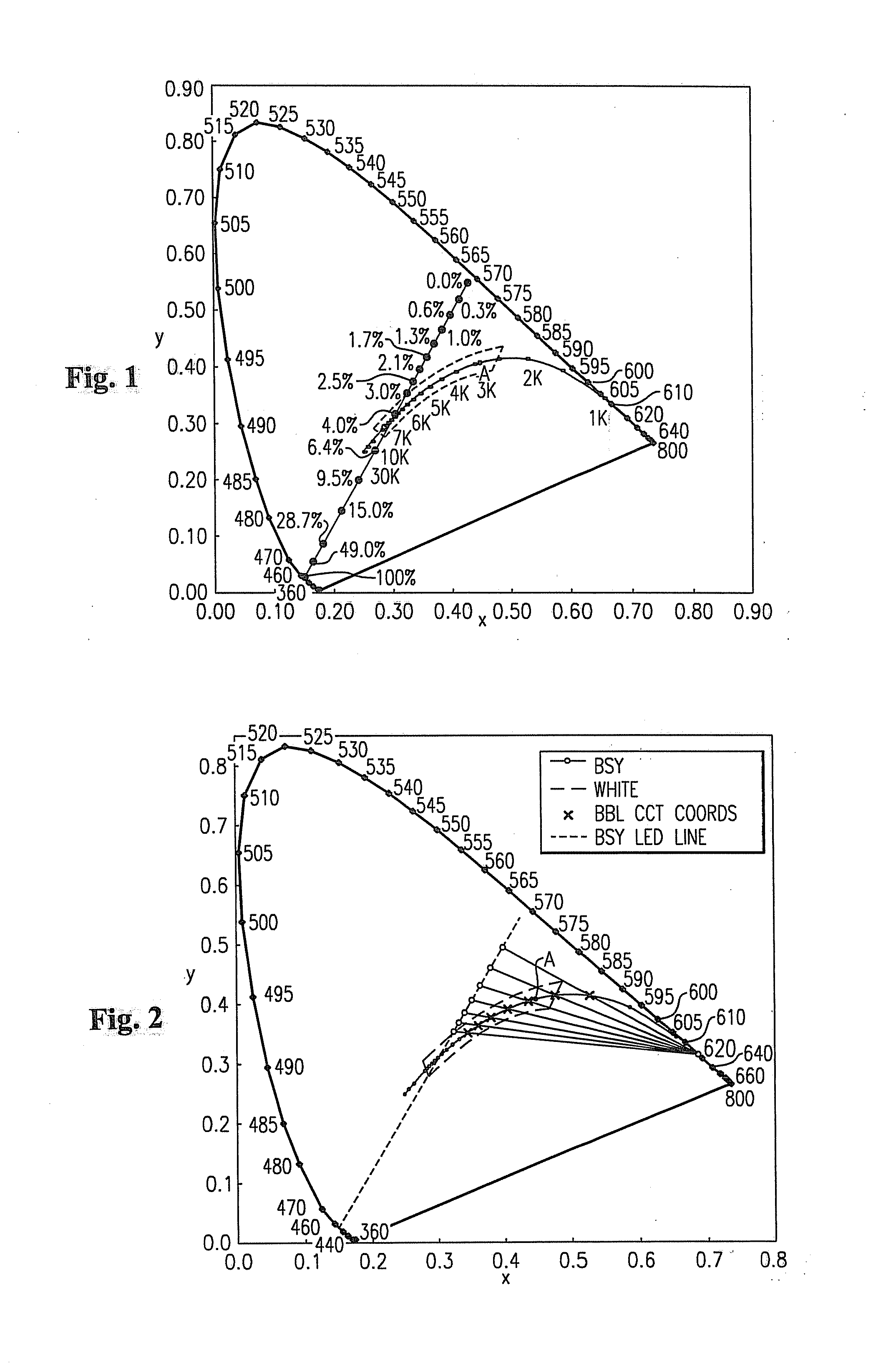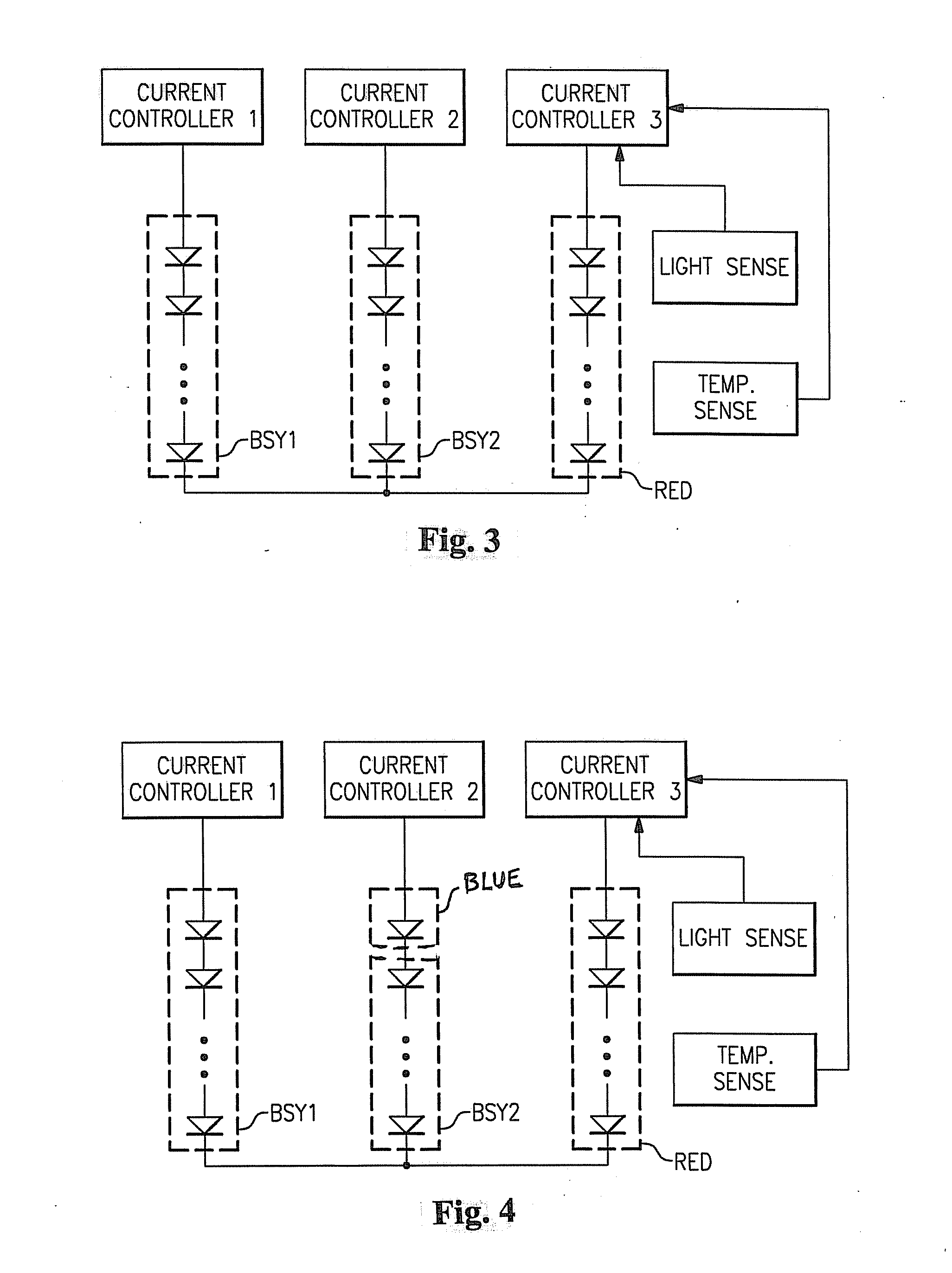Lighting device and method of making
a technology of light source and driver circuit, which is applied in the direction of discharge tube luminescnet screen, lighting and heating apparatus, light source combination, etc., can solve the problems of increasing increasing the cost of the fixture, and needing dim blue leds, so as to increase the complexity of the led driver circuit, reduce the ability to obtain dim blue leds, and improve the performance of blue leds
- Summary
- Abstract
- Description
- Claims
- Application Information
AI Technical Summary
Benefits of technology
Problems solved by technology
Method used
Image
Examples
example 1
[0389]A lighting device is constructed that has 9 BSY LEDs and 3 LWBSW LEDs, along with one or more red and / or orange LED.
[0390]Each of the BSY LEDs emits light having x, y coordinates (1931 CIE Chromaticity Diagram) of 0.3545, 0.4053 (which correspond to u′, v′ coordinates (1976 CIE Chromaticity Diagram) of 0.1982, 0.5098), a dominant wavelength of 566 nm, a peak wavelength (i.e., wavelength of the blue / cyan / green LED excitation emitter) of 444 nm, a correlated color temperature of 4869 and a FWHM of 126.
[0391]Each of the LWBSY LEDs emits light having x, y coordinates of 0.3358, 0.4092 (which correspond to u′, v′ coordinates of 0.1856, 0.5088), a dominant wavelength of 556 nm, a peak wavelength (i.e., wavelength of the blue / cyan / green LED excitation emitter) of 472 nm, a correlated color temperature of 5414 and a FWHM of 113.
[0392]The red and / or orange LED(s) emits light having x, y coordinates of 0.6865, 0.3110 (which correspond to u′, v′ coordinates of 0.5143, 0.5227), a dominant...
example 2
[0394]A lighting device is constructed that has two strings that each include six BSY LEDs, along with a third string that includes one or more red and / or orange LED.
[0395]Each of the BSY LEDs emits light having u′, v′ coordinates of 0.2362, 0.5121), a peak wavelength (i.e., wavelength of the blue / cyan / green LED excitation emitter) of about 450 nm, and a correlated color temperature of 3471.
[0396]Energy is supplied to the lighting device and the lighting device emits light that has a CRI Ra of 87.2.
[0397]One of the BSY LEDs in each of the BSY LED strings is then replaced with a LW BSY LED. Each of the LWBSY LEDs emits light having u′, v′ coordinates of 0.2358, 0.5112), a peak wavelength (i.e., wavelength of the blue / cyan / green LED excitation emitter) of 470 nm, and a correlated color temperature of 3468.
[0398]Energy is supplied to the lighting device and the lighting device emits light that has a CRI Ra of 93.7, and that includes about 14 lumen % from the red and / or orange LED(s), a...
PUM
 Login to View More
Login to View More Abstract
Description
Claims
Application Information
 Login to View More
Login to View More - R&D
- Intellectual Property
- Life Sciences
- Materials
- Tech Scout
- Unparalleled Data Quality
- Higher Quality Content
- 60% Fewer Hallucinations
Browse by: Latest US Patents, China's latest patents, Technical Efficacy Thesaurus, Application Domain, Technology Topic, Popular Technical Reports.
© 2025 PatSnap. All rights reserved.Legal|Privacy policy|Modern Slavery Act Transparency Statement|Sitemap|About US| Contact US: help@patsnap.com



